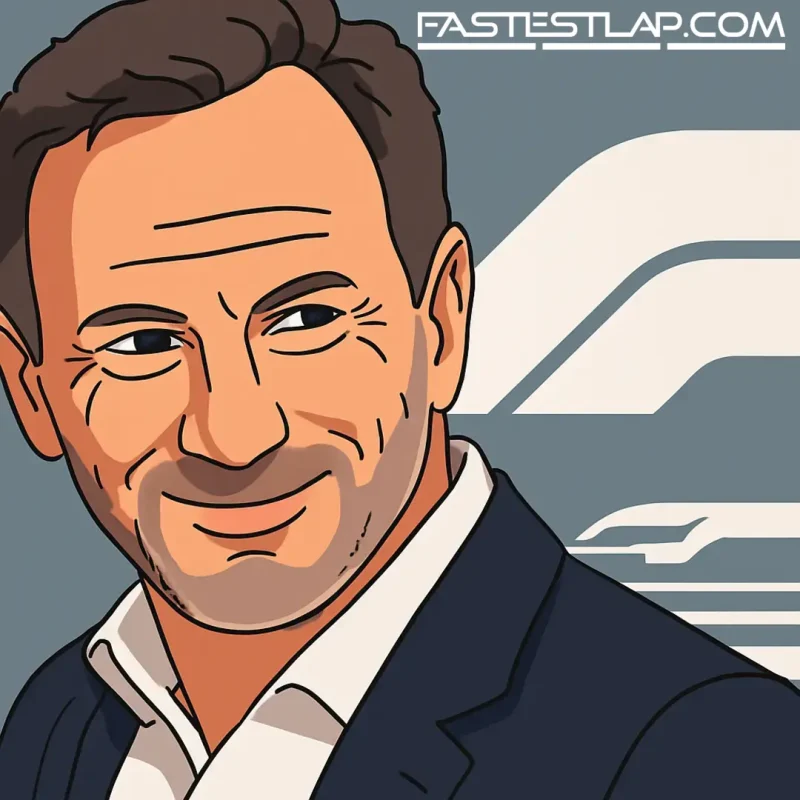Fisichella floats Horner–Briatore ‘double act’ as Alpine’s reset button — despite denials
Christian Horner hasn’t turned a wheel since his Red Bull exit, but the paddock refuses to let the story idle. Giancarlo Fisichella is the latest to wade in, suggesting a two-headed ticket of Horner and Flavio Briatore would be “a good compromise” to jolt Alpine back to relevance.
Horner’s future has been F1’s favourite subplot since he was sacked in the wake of July’s British Grand Prix, ending more than two decades in charge and a haul that reads like a dynasty: six Constructors’ titles and eight Drivers’ crowns split between Sebastian Vettel and Max Verstappen. He has since severed formal ties with Red Bull after a reported $100m settlement, clearing the way for a potential return as early as 2026 under the terms of his departure.
What that comeback looks like is the intrigue. The expectation is an ownership-style role rather than a straight team principal gig — think Toto Wolff’s hybrid of shareholder, TP and CEO at Mercedes — though those close to Horner say he’s in no rush and is focused on family life for now. His first public appearance post‑Red Bull? A quiet trip to Scotland, not a boardroom.
Alpine, however, sits at the centre of the speculation vortex. With persistent questions over Renault’s long-term appetite and a 2025 campaign that’s drifted badly — the Enstone team is last in the standings, 24 points behind Haas with seven rounds remaining — the French outfit looks like both a project in need and a project that needs a story. Briatore’s return last year as executive adviser added both. The 75-year-old has already helped chart a new course, steering the decision to repurpose Renault’s Viry engine facility and switch Alpine to customer Mercedes power from 2026.
From the outside, pairing Briatore’s firestarter instincts with Horner’s modern super-team experience sounds combustible, which is precisely why it’s captured imaginations. Fisichella, who won with Renault and had two stints at Enstone under both Benetton and Renault guises, thinks it could work.
“I think Horner can come back to F1,” he said, calling him “one of the best team principals” the sport has seen. “Maybe a mix of Horner and Briatore could be a good compromise!”
Briatore, predictably, doused the flames — at least in public. Asked at Zandvoort about the Horner chatter, he said the former Red Bull boss is “not in the picture” at Alpine and insisted, “I’m not considering anything at this moment. I hope he comes back soon, but for the moment he’s not in the picture at Alpine.”
Toto Wolff, sharing the press conference, couldn’t resist turning the rumour mill with a grin and a jab. The Mercedes boss — who memorably labelled Horner an “a**hole” after his Red Bull exit — mused that a Briatore–Horner reunion, with a dash of Bernie Ecclestone for good measure, would be “all of the mafia reunited,” adding it would bring “good content” and the sort of big personalities F1 once traded on.
Strip away the theatre and there’s a serious question underneath: what would a Horner–Briatore axis actually bring? In theory, complementary strengths. Briatore is a fixer, a dealmaker with a proven record of turning a works team into a winner and a willingness to make hard calls. Horner, meanwhile, built a high-performance machine that lasted — culture, recruitment, technical continuity, the whole works. Put that together at an Alpine resetting its engine strategy and hunting for identity, and you can at least see the rationale.
You can also see the friction points. Two alpha operators rarely share one cockpit for long, and the modern F1 team is a thousand-person organism that needs clarity more than charisma. Alpine already has layers — Enstone in the UK, Viry in France, Renault in Paris — and a split-brain leadership would need brutal simplicity, not competing fiefdoms.
Fisichella, for his part, is bullish on Briatore’s impact regardless. “Flavio is the right man,” he said. “I worked with him for many years and we were able to win two Constructors’ and two Drivers’ Championships.” He also tips his cap to the current crop: “It’s nice to have different personalities on the grid. Toto Wolff is a fantastic team principal. Also Zak Brown.”
The immediate reality, though, is colder. Alpine is scrapping for points in a season that’s got away from them, trying to look credible ahead of the 2026 reset when a new engine partner, new rules and a new story could finally give the project a clean slate. Horner isn’t in active talks. Briatore says there’s nothing cooking. And yet the rumour persists because it makes a certain kind of sense — the kind F1 thrives on.
If Horner does come back in 2026 in an ownership-style role, Alpine ticks a lot of boxes. If he doesn’t, someone else will see the opportunity to build a modern, hard-edged structure around what Enstone still does well. Either way, the boardroom silly season is alive and well, and Alpine’s next move will tell us everything about whether this reset is performance-led or personality-led.
Watch this space. In 2025, the biggest battles aren’t always on track.




